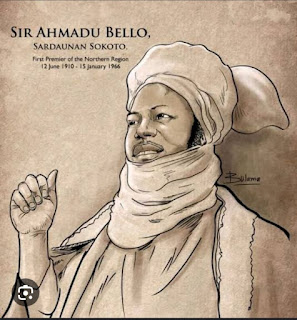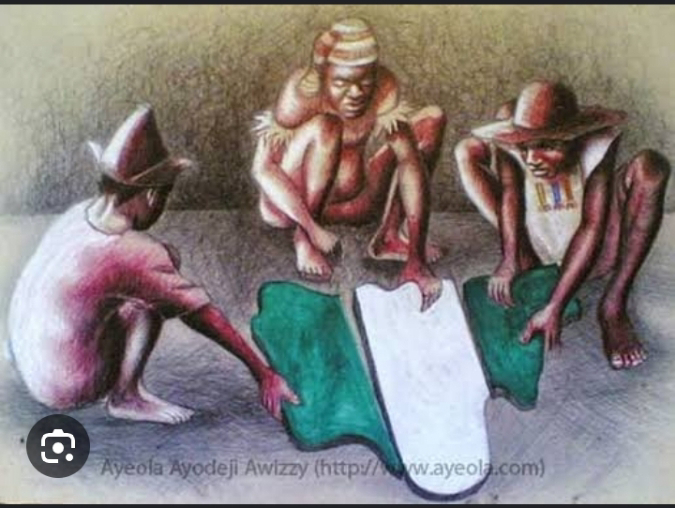Sir Ahmadu Bello, the Crown Prince of Sokoto Caliphate, a Brief Biography
Biography and Education
Sir Ahmadu Bello was born in Rabah, 1910 to the family of Mallam Ibrahim Bello, his father was a district head of Sokoto and he was also a direct descendant of Shehu Uthman Dan Fodio the founder of the Sokoto Caliphate, a great-grandson of Sultan Muhammad Bello and grandson of Sultan Atiku na Raba.
He received Islamic education at home where he learnt the Qur'an, Islamic Jurisprudence and the traditions of Muhammad. Like most of his mates he later attended Sokoto Provincial School and the Kastina Training College, during his school days he was known as Ahmadu Rabah. He finished school in 1931 and subsequently became a teacher in Sokoto Middle School.
In 1934, Bello was made the District Head of Rabbah by Sultan Hassan Dan Mu'azu, in 1938 he was promoted to the position of Divisionary Head of Gusua which is in present day Zamfara State. In the same year he tried becoming the Sultan of Sokoto at the age of 28 but he lost to Sir Siddiq Abubakar III who ruled for 50 years until his death in 1988.
The Sultan immediately made Sir Ahmadu Bello the Sardauna, Crown Prince of Sokoto Caliphate. Bello became the Chief Political Adviser to the Sultan later he was put in charge of the Sokoto province to oversee 47 district and by 1944, he was back at the Sultan's palace to work as the Chief of the State Native Administration.
Political Career and Assasination
In the 1940s, he joined Jamiyaar Mutanem Arewa which later became the Northern People's Congress (NPC) in 1951. In 1948, he travelled to England on a Government scholarship to study local government administration which broadened his understanding and knowledge of governance. After returning from Britain, he was nominated to represent the province of Sokoto in the regional House of Assembly. In the first election of Northern Nigeria in 1932, Sir Ahmadu Bello won seat in the Northern House of Assembly, he also became a member of the regional executive council as Minister of Works. In the 1959 independence election, Bello led the NPC to majority seats in parliament. Bello as the president of the NPC, chose to remain premier of Northern Nigeria and devolved the position of Prime Minister of the federation to the deputy president of NPC, Abubakar Tafawa Balewa.
Bello had three wives and three surviving daughters with another wife Amina (Goggon Kano) his eldest daughter was inno followed by Aisha and Lubabatu. On 15 January 1966 Bello alongside other political leaders was assassinated during the coup Led by Major Chukwuma Kaduna Nzeogwu.


Comments
Post a Comment